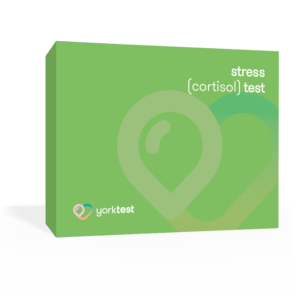Nutritional Benefits of Dairy – Is Dairy Good for You?
Dairy products are nutrient-dense foods that offer many nutritional benefits. These foods supply high-quality protein, calcium, and several vitamins that are essential for our overall health.
One of the primary benefits of dairy is its calcium content. Calcium is a mineral that is crucial for building and maintaining strong bones and teeth. Adequate calcium intake, especially during childhood and adolescence when bone mass is being built, can help reduce the risk of developing osteoporosis (a condition where bone mass and density decreases) later in life.Â
In addition to calcium, dairy foods provide high-quality protein that is needed for building and repairing muscles. The protein found in dairy is a complete protein, containing all nine essential amino acids required by the body. When combined with exercise, dairy proteins can support muscle growth, maintenance, and recovery too.Â
Thanks to its calcium and protein content, dairy consumption has been associated with a reduced risk of osteoporosis and fractures. Studies have shown that individuals who consume the recommended amounts of dairy products have higher bone mineral density and a lower incidence of osteoporotic fractures compared to those with low dairy intakes.
Dairy products are also a good source of several vitamins and minerals that contribute to overall nutrient intake. These include vitamin D, which aids in calcium absorption; vitamin B12, important for red blood cell formation and neurological function; and minerals like phosphorus and riboflavin.
Concerns associated with Dairy consumption
While dairy does have many benefits, there are some legitimate concerns that should be considered regarding its consumption.
Lactose Intolerance
A significant portion of the population experiences lactose intolerance, which is the inability to properly digest lactose, the natural sugar found in milk and dairy products. This can lead to unpleasant digestive symptoms like bloating and diarrhoea after consuming dairy foods. The degree of lactose intolerance can vary, with some being able to tolerate small amounts of dairy.
Dairy allergies
True dairy allergies, while less common than lactose intolerance, do exist. A dairy allergy is an abnormal immune system response to the proteins found in milk that can result in symptoms like hives, vomiting, and even anaphylaxis. Many also report non-allergic sensitivities that cause issues like eczema or acne when dairy is consumed. You can read more about the differences between lactose intolerance and dairy allergy here.Â
High saturated fat contentDairy products like whole milk, cheese, and butter are sources of saturated fat and cholesterol. Although the relationship between dairy fats and heart health is complex, Â diets high in saturated fat have still been linked to increased LDL (bad) cholesterol levels and a higher risk of heart disease.
Environmental impact
The dairy industry and cattle farming have been criticised for their negative environmental effects, including greenhouse gas emissions that contribute to climate change, as well as their use of land and water resources. The ethical treatment of dairy cows has also been scrutinised.
Benefits of Going Dairy Free
For those who are lactose intolerant, allergic to dairy, or looking to minimise consumption of animal products, eliminating or reducing dairy intake can provide some notable benefits.
One of the biggest upsides to avoiding dairy for those with lactose intolerance or sensitivities is improved digestive health. Cutting out dairy can relieve issues like bloating, gas, diarrhoea and abdominal discomfort that commonly occur after consuming dairy products.Â
Some of our customers at York Test who have taken a Premium Food Intolerance test have reported an increase in energy levels and reduced fatigue when avoiding dairy. Potential causes could include relief from inflammatory responses triggered by dairy, or simply easier digestion without lactose.
For others, dairy can worsen respiratory problems like chronic sinus congestion, asthma, and excess mucus production.
Going dairy-free due to health reasons doesn’t need to feel restrictive. It opens up the opportunity to explore the many varieties of plant-based milks , cheeses, yoghurts and other dairy alternatives made from nuts, seeds, legumes and grains. With these, you won’t need to worry about missing out on any nutrients or calcium either.
Lastly, there is anecdotal evidence that reducing or even eliminating dairy might improve skin conditions like acne. It’s the hormones naturally present in dairy products that are believed to potentially aggravate inflammatory skin concerns for some individuals. So, this may be true for some, but there is not enough evidence to prove consuming dairy irritates the skin.Â
For many people, enjoying dairy in moderation can be part of a balanced, nutritious diet, however as we’ve explored there are also some legitimate concerns to weigh when it comes to dairy consumption, such as digestive and immune reactions.Â
Ultimately, deciding whether to consume dairy or explore the many dairy-free alternatives is a personal choice that depends on your nutritional needs, health status and dietary preferences. Those with lactose intolerance or milk allergies may need to strictly avoid or limit dairy. Others may choose plant-based alternatives to reduce saturated fat intake or minimise environmental impact, and many can likely continue to enjoy dairy as part of a well-rounded diet.
The key is making mindful decisions – don’t be afraid to experiment with dairy and non-dairy foods, and discover what makes you feel your best!













